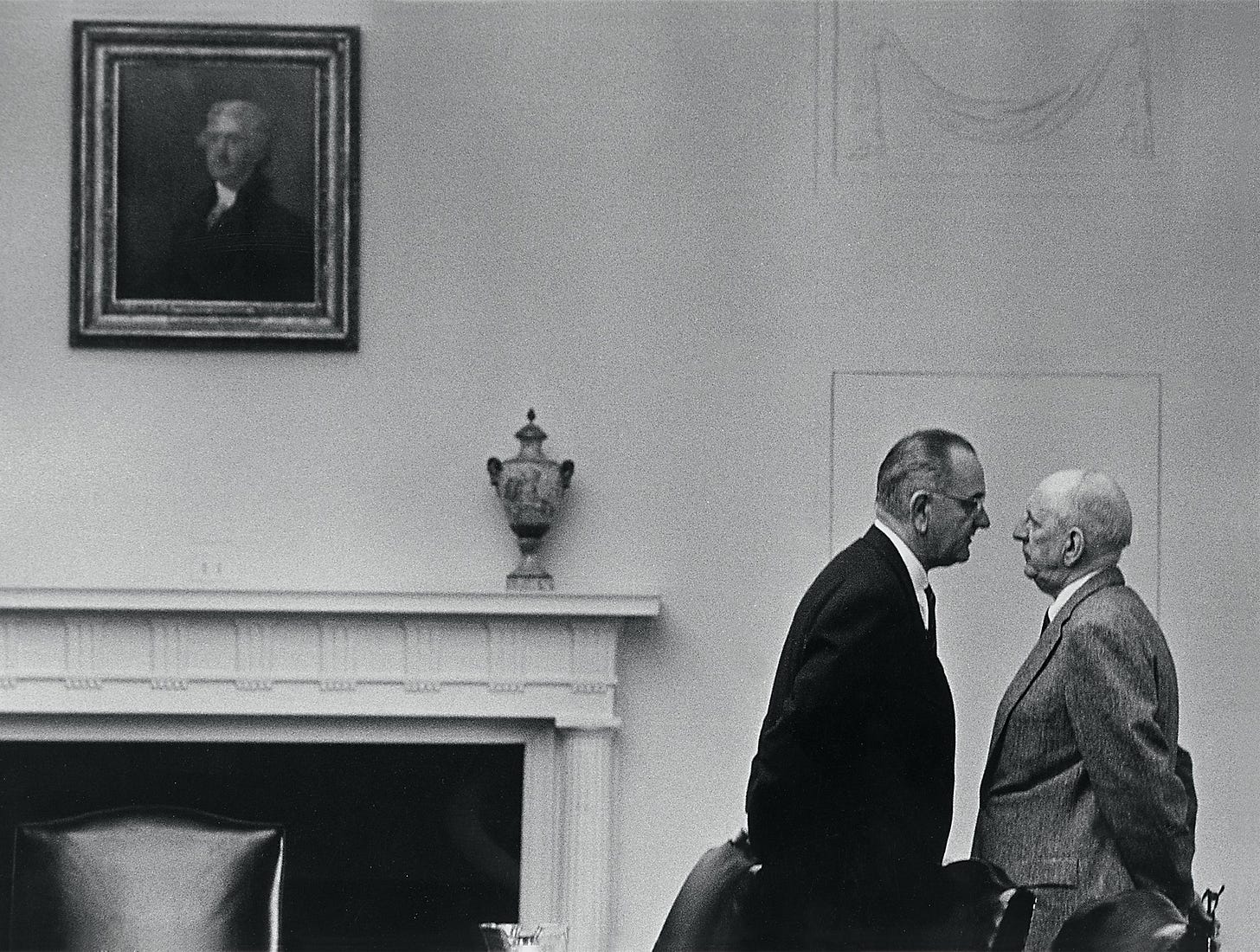Sunday Snapshots (7th June, 2020)
Codifying compassion, Bias in algorithms, Fund for underrepresented founders, Newsletters written by Black writers, and 13th
Hey everyone,
Greetings from Evanston!
As the bell tolls for my undergraduate years, it also tolls for some of our most limiting assumptions. Assumptions like the prevalence of large university and office campuses, the presumption of in-person conversations in order to build meaningful relationships, and the silence of the minority. That last one is obviously top of mind for everyone here in the US given the recent protests across the country. And given the global importance of the US – both economically and culturally – it is top of mind for the world. And given the moral importance of the protests, it should be top of mind. It’s tough to tune out – as it should be.
As always, I’m here if you want to talk – it’s something I can control and am able to do. Just reply to this email.
In this week’s Snapshots, I want to talk about:
Codifying compassion
Bias in machine learning algorithms that run the world
A new venture fund for underrepresented founders
Newsletters written by Black writers
The best documentary to learn about systemic racism
Book of the week

This week, I found myself re-reading the chapters about the civil rights movement in Robert Caro’s Master of the Senate and The Passage of Power. I was reminded of the “History doesn’t repeat itself but it often rhymes” adage and while I’m not the only who has drawn comparisons between the recent protests and the civil rights movement of the 50s and 60s, I do think I think about this through a somewhat unique lens. My take is that the success of that movement was not achieved through compassion alone. It was achieved through codifying that compassion.
First, let me set the stage. In the post-Civil War era, Southerners realized that they could stem the tide of civil rights legislation through their Senate strongholds. Using a combination of legislative weapons like the filibuster and the powers vested in the body by the founding founders, the Senate acted like a dam against civil rights. The tide would come and go, but the dam stood unbroken.
Until there was someone who was willing to break the dam to build a better future for the most vulnerable Americans.
That someone was Lyndon Baines Johnson. Johnson was a “professional son” to the head of the Southern caucus, Senator Richard Russell of Georgia. Russell was an effective Senator and was passionate about the preparedness of America’s military and the prosperity of America’s farmers. But no cause was more important to him than the Lost Cause. And nowhere was he more effective. A master legislator, he ensured that no civil rights bill broke the Senate dam for decades. As Caro writes, “His charm was more effective than chains in keeping black Americans shackled to their terrible past.”
But this master legislator had trained an equally masterful politician. Lyndon Johnson knew that to achieve his ultimate ambition of becoming President – he was known to say “by God I’ll be President some day” as early as his teenage years. Around this ambition was an armor of passion for helping the poorest Americans. As poor as he had once been. Whenever passion fought pragmatism in Lyndon Johnson’s life, passion has lost without a fight at all. But finally, passion and pragmatism were aligned. In order to acquire power in the Senate he had had to bend to the will of Richard Russell, but in order to become President he would have to bend Richard Russell.

Photo: Johnson giving Richard Russell the infamous Johnson Treatment.
Bend Richard Russell he did and in the process, he bent the arc of American history towards justice for African Americans. The details of how the Civil Rights acts were passed are mired in legislative details, but my point is that while compassion can create the conditions for action, action is what is ultimately needed. It requires individuals and groups to rise up to the occasion. We have already seen some of that as a result of the George Floyd protests, and I hope we see more in the coming weeks and months.
Long read of the week
Bias in Machine Learning Algorithms
There is no shortage of papers underling the problem of bias in machine learning algorithms – a cursory search gives me examples in facial recognition, hate speech, online abuse, and legal judgements. As these algorithms control more and more of our lives, this becomes less of a research question for PhD students and more of a policy nightmare.
So I wanted to explain why this bias exists in these models at all. As always, the machine are simply doing what we are telling them to do (for now…).
First principles thinking – starting from a few axioms and building functionality on the basis of these axioms – is difficult. While you can teach models to do this in the case of a few “kind” environments like Chess, the computational complexity required to do this for “wicked” environments like facial recognition is too high.
Therefore, we feed them a bunch of data and tell them how decisions were made using this data. This is the key pitfall – embedded in this data about how we made decisions in the past are our biases.

This is a fundamentally difficult problem to solve. First, you cannot teach models social context. Second, you will typically test these models on other real-world data to evaluate their performance – and that real-world data has bias itself. If those two weren’t difficult problems to solve, the kicker is that it’s not clear what a “fair” model would look like.
I believe that this is one of the most pressing problems facing our world and not enough people are actively working to solve. If you know of people or companies working on this, please send them my way.
Business news of the week

Venture capitalists often describe their job as “pattern matching.” We’ve already seen how using past data to predict future results can be dangerous. And I’m sure it comes as no surprise to you that algorithms are not the only ones susceptible to this dangerous practice.
Capital in the venture space has had notoriously homogenous allocation. This practice is not just bad for PR, but bad for performance as well. From Del Johnson’s Ban Warm Introductions:
Warm introductions and “pattern matching” combine to create a toxic mix. Using the demographic traits of previous successful founders to try and predict which new companies will perform best sits in opposition to the spirit of venture because, definitionally, the outliers of the future are less likely to look like the ones of the past.
What risk-averse early-stage investors fail to understand is that VCs are tasked and rewarded for finding the pattern-breakers, the outliers and exceptions to the rule. Focusing on patterns and networks makes it more likely that an investor will miss a true disruptor.
One of Silicon Valley’s most prestigious firms, Andreessen Horowitz, are trying to fix this through their new Talent x Opportunity Fund. It will be focused on investing in underrepresented and underserved founders. Any profits generated by the fund will be re-invested into it.
The fund has received some criticism about being opportunistic and I think that the criticism is somewhat deserved. What’s needed is continuous investments in underserved parts of the startup world. What’s needed is hiring or wiring.
Newsletter(s) of the week
While I don’t have as big a platform as others, I do have one. So, I wanted to share some of my favorite Black writers in the tech/VC space:
Trapital by Dan Runcie: This newsletter has everything I love. Hip-hop? ✅. Business strategy? ✅. Great writing? ✅. An absolute must-subscribe.
2PM by Web Smith: Web has a background as an operator at some of the earliest e-commerce companies and has built a media empire at 2PM. If you want to learn how the world of tomorrow will be today, read everything he writes.
Sydney Paige Thomas: Sydney’s reflections on her own writing are extremely powerful and she is one of the best when it comes her ability to merge entertainment and information. That’s an ability that is critical to succeed today.
Mercedes Bent: I was introduced to Mercedes’ work earlier this year through her piece on the future of work. I wish she wrote more often but I’m glad that I don’t have to compete with her for your attention 😅.
Stan by Denisha Kuhlor: Denisha explores the ever-evolving relationships between artists and fans. In a world where one-person brands are becoming increasingly common, this is an important dynamic to keep tabs on.
Trends.vc by Dru Riley: I’ve only recently started reading Dru, but his deep dives on the latest trends in business have become a core part of my information diet.
Go ahead and subscribe to them!
Documentary of the week

Words are powerful. Rules are powerful too. So words used to write rules in one of the most revered non-religious document in the world are understandably very powerful. That’s the story of the 13th amendment of the US constitution is the story of words and rules being used against the very people they were supposed to protect. Section 1 of the amendment says (emphasis mine):
Neither slavery nor involuntary servitude, except as a punishment for crime whereof the party shall have been duly convicted, shall exist within the United States, or any place subject to their jurisdiction.
13th is a Netflix documentary about how those emphasized words – “except as a punishment for crime” – form one of the central tenets of the Lost Cause. It is as important to watch as it is uncomfortable. Covering everything from how media was used to vilify an entire race to the economic forces facing African Americans today, this documentary is a must watch.
That wraps up this week’s newsletter. If you want to discuss any of the ideas mentioned above or have any books/papers/links you think would be interesting to share on a future edition of Sunday Snapshots, please reach out to me by replying to this email or sending me a direct message on Twitter at @sidharthajha.
Until next Sunday,
Sid
